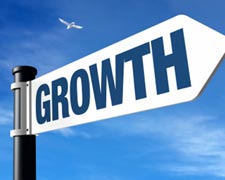
A tale of two dogs.
My friend Dan has a cute little dog that he loves, but it’s making his life complicated. When he lets the dog out, it runs off, explores the entire neighborhood, and won’t come back when it’s called.
So Dan spends a fair amount of time worrying. Not to mention, walking around trying to find his dog (sometimes in the wee hours of the morning).
Another friend, Inky (I’m not making this up, that’s his real name), has a very obedient boxer. Upon Inky’s quiet commands or even silent hand signals, his dog will happily sit, stay, come, roll over, lie down, play dead or jump in his truck.
I’m guessing Inky could even get this dog to make the bed.
You may think that Dan has a bad dog and Inky has a good dog.
It’s not about the dogs.
The difference in these two pets andndash; or more specifically in these two pet owners andndash; is also the secret ingredient to many successful businesses.
The difference is discipline.
Not just the discipline of the dog. The discipline of the owners.
The self discipline it takes to train the dog. The self discipline to think things through, to be patient, to be consistent, to communicate, to devote time to training the dog.
You wear a lot of hats.
The truth is, owning a business is hard and we’re pulled in a dozen different directions at once.
Marketing, technology, social media, operations, financials, taxes, employment law, customer service, teamwork, strategy, interviewing, hiring, workers compensation.
The list of issues that a business owner has to know about is almost frightening.
Not everyone succeeds.
I’ve seen business owners who were creative marketing geniuses that still achieved only mediocre results. I’ve seen business owners who were a whiz with numbers or who had terrific people skills, and still stalled out at a lackluster plateau.
In most cases it wasn’t lack of smarts that held them back.
It was lack of discipline.
You may have a brilliant marketing mind and come up with the most clever, noticeable marketing campaigns. But if you don’t have the self discipline to execute those plans consistently, you won’t see the growth you want.
You can be a great sales person, skilled at developing relationships, drawing out prospects’ needs and offering just the right solution to meet the customers’ needs. But if you’re only “on” 25 weeks of the year, your company will never reach its full potential.
You can read business books about strategy, execution, planning, and leadership (yawn). You can have all the “head knowledge” on all the topics & subjects.
You can know what to do and still not do it.
Or not do it consistently. And it’s the consistency that makes all the difference.
No matter how good you are at some (or all!) of these things, without a healthy dose of self discipline, your results will never be what they could be.
What does self discipline look like?
Here are just a few ideas. You likely have more.
- Being on time for meetings and appointments
- Keeping your word
- Treating others with respect
- Doing what needs to be done, day in and day out, even when you’re tired, frustrated or disappointed
- Staying focused amidst a thousand distractions
- Containing your emotions when you’d like to rant and rave
- Being consistent instead of chasing every new idea
- Focusing in on two or three target markets, instead of trying to be all things to all people
- Following the policies and procedures (that you put in place yourself!)
- Facing difficult people issues instead of avoiding them
- Having fiscal discipline, instead of spending yourself into a hole too big to dig out of
- Holding regular weekly staff meetings with a real agenda
- Scheduling and holding quarterly and annual planning sessions
As I look back on the most successful women business owners we’ve worked with over the years, the common denominator andndash; regardless of industry or intellect andndash; is self discipline.
It’s not flashy, it’s not glamorous, but self discipline may just be the secret ingredient to your business success.
I’d love to hear your shortcuts, tricks and secrets to developing habits of self discipline. Just post them in the Comments section.



 I drove to a retreat center six hours away — convertible top down, stereo volume up. Wind blowing in my hair and sun warming my skin. The drive alone was therapeutic.
I drove to a retreat center six hours away — convertible top down, stereo volume up. Wind blowing in my hair and sun warming my skin. The drive alone was therapeutic.
